
How could Keir Starmer say ‘never again’ amidst UK complicity with Gaza’s genocide?
Last week, Keir Starmer tweeted that he is making a commitment to ensure the Holocaust won’t just become a part of learning in schools, but of “every student’s identity”. He added: “We will make sure that the Holocaust is never forgotten, and never again repeated.”
To those of us who have been paying attention, this dizzying level of cognitive dissonance might be shocking, if not surprising. There’s no doubt that studying the Holocaust can be commendable in itself. However, it’s essential to see this announcement against the backdrop of the many other genocides that have taken place before and since, and especially the genocide in Gaza that continues to be directly enabled and facilitated by the UK.
It is bizarre to think that Starmer is placing so much emphasis on a genocide that happened in the past while completely ignoring the ongoing genocide the world has been witnessing for almost a year now, as well as erasing his own role in it. Back in May, I wrote about Gaza and the politics of genocide, noting: ‘It’s almost as though ‘Never Again’ only means ‘Never Again – except when it comes to genocide being perpetrated against a group other than the Jews’.’
Comparing struggles
The punitive response to anyone who might dare to compare the struggles of Palestinians with what Jewish people experienced in the Holocaust is well-evidenced. One prominent example is Sky News presenter Belle Donati, who, in an interview with former Israeli minister Danny Danon, compared the ethnic cleansing of Palestinians in Gaza to the Holocaust. Earlier in September, Sky News confirmed it was firing Donati from her job.
Yet upon examining the origins of the word ‘holocaust’, it becomes clear that it isn’t a word that can only be used for crimes against humanity which were perpetrated by the Nazis or against Jews. Not only that, but when we compare what happened in the Holocaust to what’s happening in Gaza today, we could go as far as to say that it is a present-day holocaust.
Back in 1982, following the Sabra and Shatila massacre, African-American poet Jude Jordan made the following point in a letter that was recently made public:
“Neither the word holocaust nor the word genocide was invented to describe the loss of Jewish or European life. Both of these words mean what they mean whether the victim is Jewish or not. Accordingly: Israel has created a holocaust in Lebanon entirely consistent with its genocidal aims as regards the Palestinian people. Indeed, the issue of the Palestinian people is the issue of the value of human life, per se, and, more specifically, the issue of the value of human life that is neither Jewish nor European.”
Furthermore, the Encyclopaedia Brittanica entry for the Holocaust notes that: 'The word Holocaust is derived from the Greek holokauston, a translation of the Hebrew word ʿolah, meaning a burnt sacrifice offered whole to God. This word was chosen, and gained wide usage, because, in the ultimate manifestation of the Nazi killing program—the extermination camps—the bodies of the victims were consumed whole in crematoria or open fires.'
Targeting Palestinians
If we objectively take stock of the atrocities Israel has committed against Palestinians in Gaza alone since 7 October, it would be difficult not to acknowledge the valid comparisons between Israel’s genocide in Gaza and the Holocaust committed by the Nazis. How many bodies in Gaza have been consumed whole by indiscriminate bombing? How many, including children and the elderly, have Israeli forces summarily executed, and how is this different to the way the Nazis targeted their victims?
After the fajr/dawn prayer massacre at Tabaeen School, human remains were unidentifiable and distributed to loved ones at random in plastic bags. Israel has reportedly been using banned thermal weapons which cause bodies to ‘evaporate’ due to extreme heat.
The bombing of tents in the Al Mawasi ‘safe zone’ on 12 September created craters so vast that bodies were submerged deep into the ground. Israel has repeatedly told people to evacuate to confined ‘safe zones’ and then bombed those safe zones.
By early June, Israel had dropped over 70,000 tonnes of bombs on Gaza. Compare this to the Hiroshima nuclear bomb which was the equivalent of 15,000 tonnes, while Hiroshima is 2.5 times larger in area. And the bombing in Gaza continues with no signs of waning.
The genocide in Gaza made it clear that genocide recognition is not necessarily about prevention. As I previously wrote, it’s ‘not an equal application of justice for all human beings. It is not concerned with state actors facing accountability and having checks and balances for their power. Rather, it is simply about white guilt over the Holocaust, and Zionist, colonial interests capitalising on this in service of their own ends.’
This goes to the heart of why Starmer can say ‘Never Again’ and talk about the Holocaust being taught in schools while simultaneously enabling genocide in Gaza. It is appalling to think that the Holocaust has been cynically used to promote imperialist agendas. ‘Never Again’ represents the world’s recognition of how severe the crime of genocide is, while genocides enabled by western imperialist interests carry on unabated.
And this explains why there is immediate silencing, as in Donati’s case, of those who dare to compare the Holocaust to Gaza, or compare Israel’s actions to those of the Nazis. It is a way to minimise and justify Israel’s crimes. To speak out against this silencing, therefore, is to resist the erasure of the genocide in Gaza as well as genocides elsewhere.
In the process, by no means are we trying to erase or minimise the horror of what happened during the Holocaust in WWII. Rather, we’re simply trying to ensure that ‘Never Again’ really means Never Again.
Afroze Fatima Zaidi is a writer, editor and journalist. She has a background in academia and writing for online platforms.
Follow her on X: @afrozefz
Join the conversation: @The_NewArab
Have questions or comments? Email us at: editorial-english@newarab.com
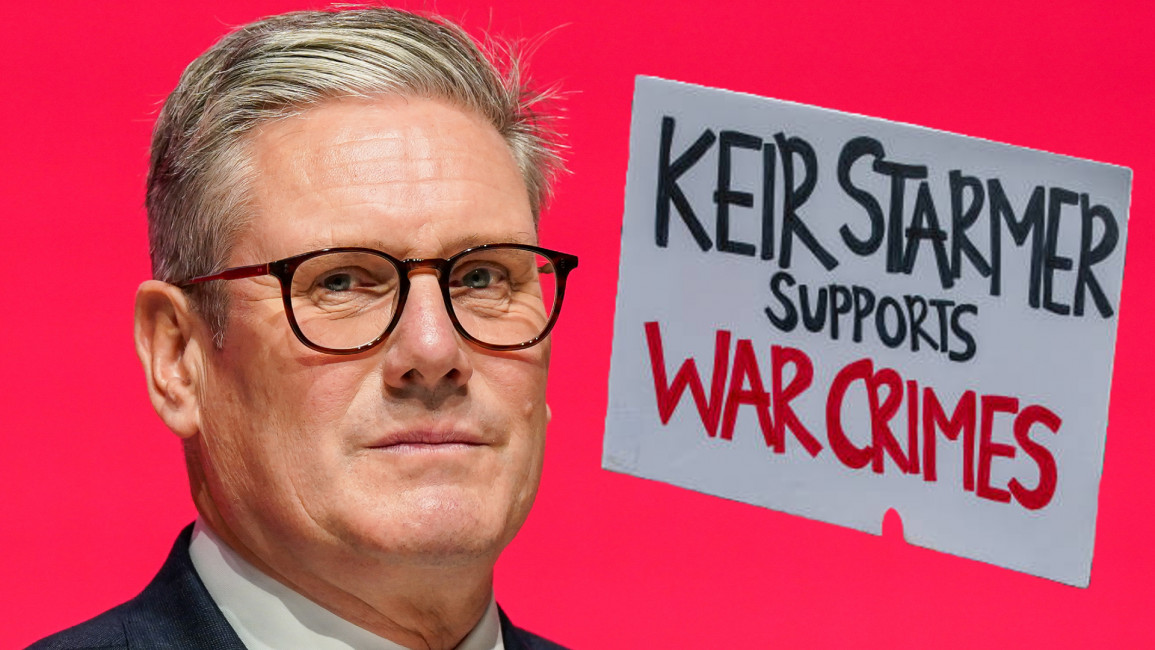
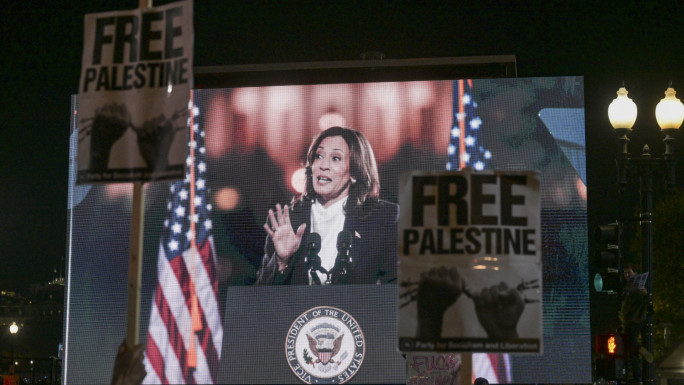
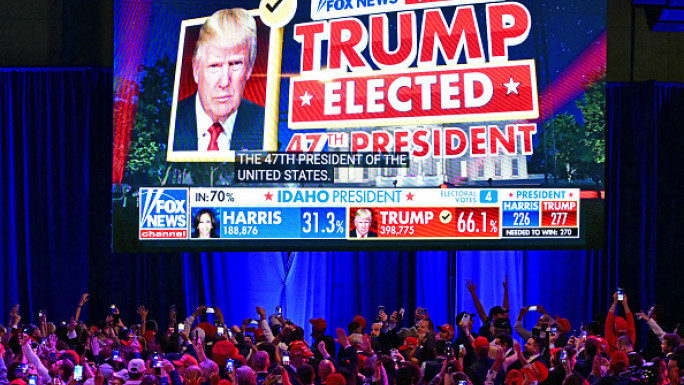
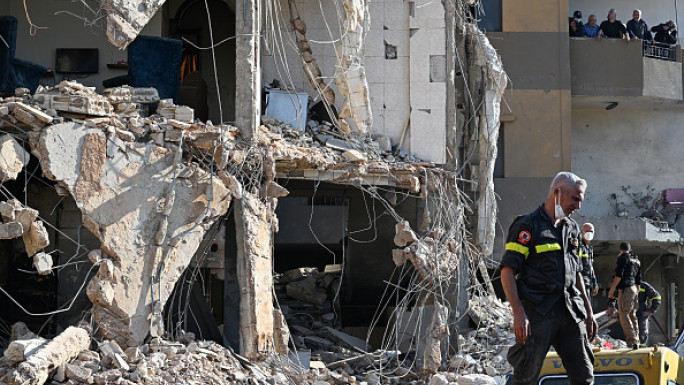
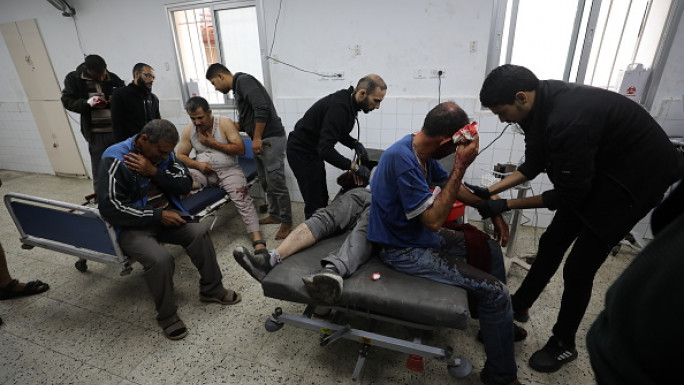
 Follow the Middle East's top stories in English at The New Arab on Google News
Follow the Middle East's top stories in English at The New Arab on Google News


